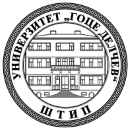CRIMINAL OBSERVATION OF THE CONSEQUENCES OF THE EUROPEAN MIGRANT CRISIS



Abstract: 2015 brought a migrant crisis in which, although migrants aspired to enter one of the countries of the European Union, it did not bypass the non-EU countries that are on European ground. Specifically, our country, having in mind its location, found itself as part of the most used route – the Western Balkans route, for transit to the desired destination. Problems, from a criminal legal point of view, intensified especially after the closure of the route in March 2016, which contributed to the intensification of attempts for illegal entry, even at the cost of involvement in committing crimes. The route still remained attractive, unlike alternatives that are not passable like it, and although closed, it was used illegally. Thus, the the crimes that are done from the migrants and especially towards the migrants, has made them victims of several serious violations of human rights and freedoms. Especially the acts of trafficking in human beings and smuggling of migrants, as particularly severe crimes that are problematic to detect, recognize and suppress.Permanent analysis of the matter, to date, is especially necessary to prevent similar practices in the future. Therefore, in the paper we will give a brief criminological overview of the criminal-legal consequences left by the crisis, ie the most serious crimes committed in the period – trafficking in human beings and smuggling of migrants.
Keywords: human trafficking, migrant smuggling, victims, routes, statistics
